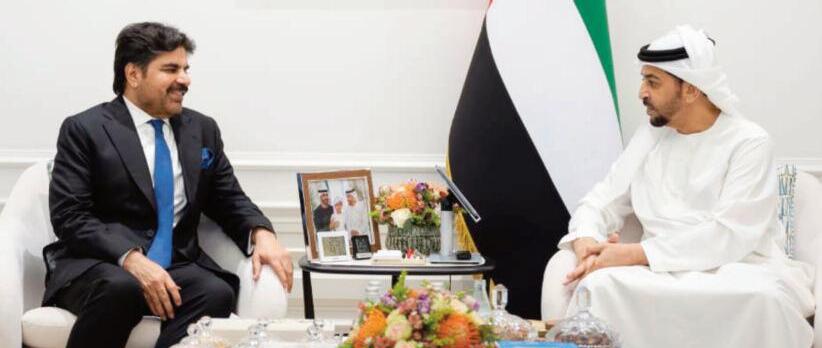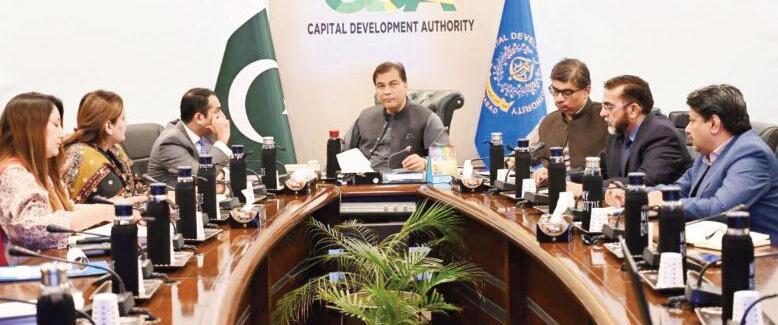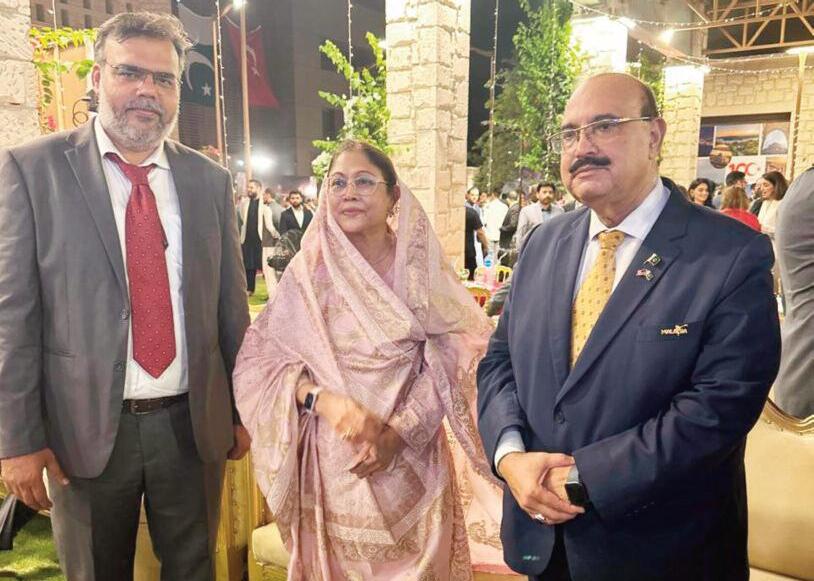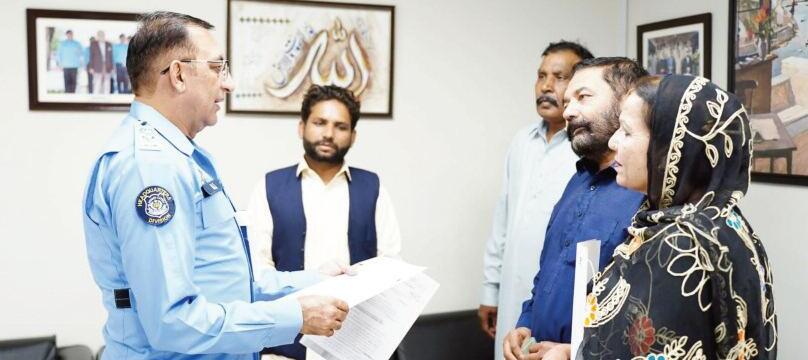
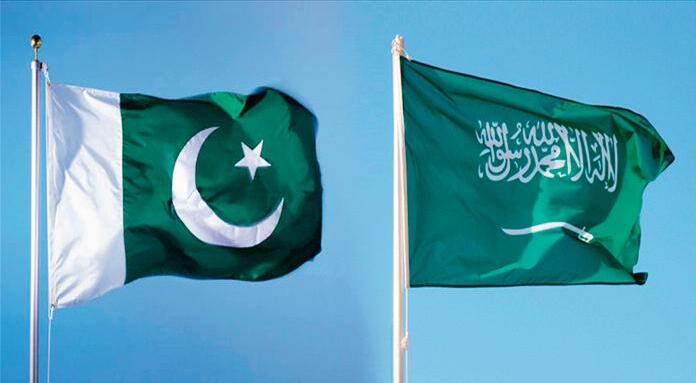



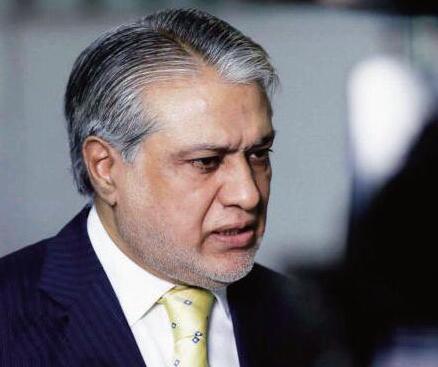
s delay in constructing its portion of the Iran-Pakistan gas pipeline and its failure to import 750 million cubic feet per day (mmcfd) of gas as stipulated The News reported citing top official sources in the Law Division and the Attorney General s Office that the legal team has been briefed on the details of the Iran-Pakistan (IP) pipeline project and the challenges that hindered Pakistan’s compliance Pakistan officially submitted its legal team information to the Paris-based court on October 18 2024 The country will now select an arbitrator Iran will appoint its own and both parties will choose a third arbitrator to complete the panel Once established, the arbitration process is expected to conclude within approximately one year In August 2024 Iran issued a final notice to Pakistan indicating that it would proceed with arbitration due to Pakistan s failure to construct the pipeline within an extended 180-day deadline, which expired in September 2024 The project, initially signed in a Gas Sales Purchase Agreement (GSPA) in 2009, has faced a 10-year delay largely due to the threat of U S sanctions on countries engaging in energy projects with Iran The French-based Arbitration Court which operates independently of U S sanctions will serve as the dispute resolution forum Under a revised contract signed in 2019,
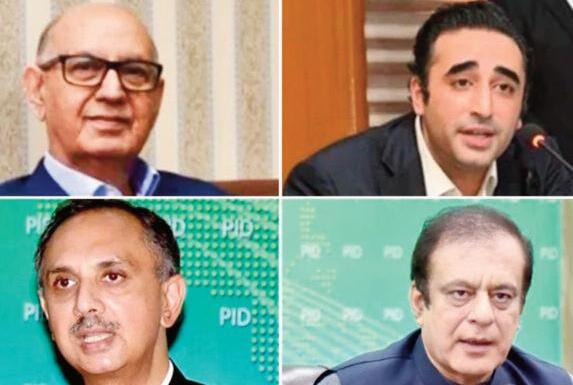


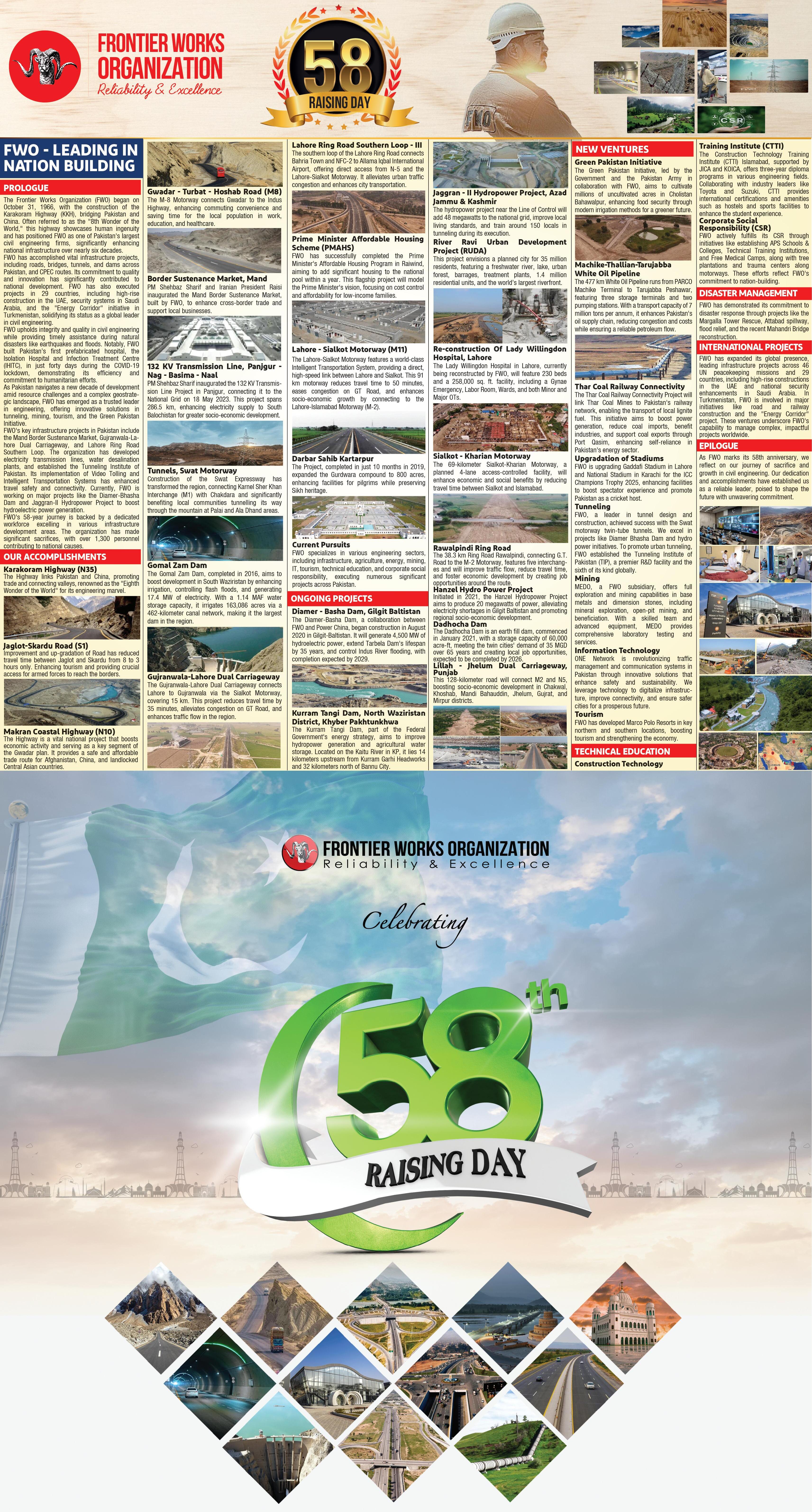

B C



PR I M E M I N I S T E R Shehbaz Sharif was perhaps right not to speak of his views on solarization as a guest of Saudi Arabia, the world s largest oil exporter, but he showed the modernity of his vision by telling the plenary session of the 8th Future Investment Initiative in Riyadh on Tuesday that the future belonged to a knowledgebased economy based on innovation in artificial intelligence health and education All of these are truisms, but they need to be operationalised How exactly this is to be done depends on how far the government is willing to prepare the population for the changes that are to come
An important point that Mr Sharif made was that this could only be achieved if countries cooperated in this This would apply to sharing technology as well as best practices This could become a new form of neocolonialism, if certain countries were seen the sources of both, as at present, which allows them also to exercise a cultural dominance as if clothes were substitute for technology, or mores were a substitute for best practices Mr Sharif said that this was only possible if countries cooperated together this implies a free exchange of knowledge even though it will have become the most valuable commodity in the world Mr Sharif has a powerful point: it requires the best ideas to solve the world s problems, ans it will not matter where those ideas come from The current model is of hanging on to ideas, keeping technology secret, and weaponizing it so as to use against the enemy
However as Pakistan is experiencing the problems of today require solutions involving old rivals To take a small example, there is no wy Pakistan or India can solve their smog problem on their own
This requires a change in mindset among those who might have a vested interest in conflict It is essential that they realize that their future is bleak unless they are ready to change This includes all those who support outdated technologies like the oil lobby There must be a willingness to change an open-ness to innovation, among decision-makers In this respect, Saudi Crown Prince Muhammad Bin Salman, the host of this event, shows realism, in looking to future for his country in a world where oil no longer drives the world’s economies Though what Mr Sharif said was revolutionary it was also hardheaded realism Now what he has to do is walk the

Dedicated to the legac y of late Hameed Nizami Arif Nizami (Late)
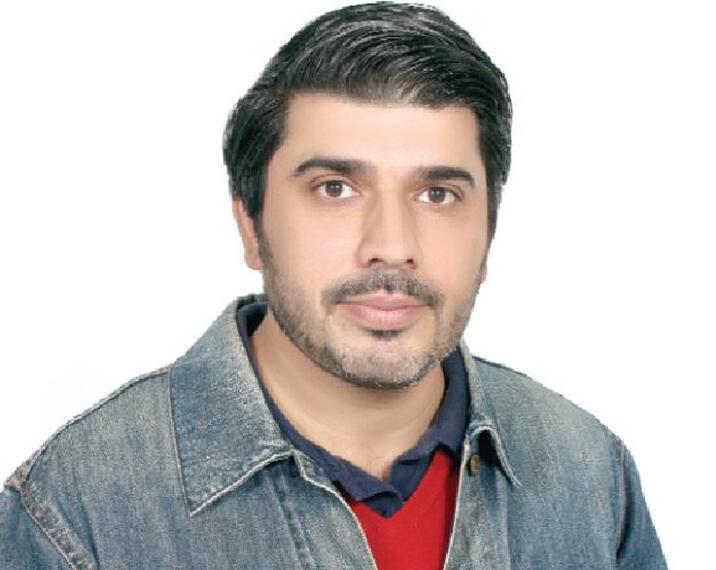
E S I S T I N G the temptation of arguing with fools is a necessary condition for spiritual and mental peace It is easier said than done though The root of the difficulty, ironically is a very desirable attribute: namely allegiance to sense and reason When somebody says something exceedingly stupid one cannot help feeling obliged to set the record straight This is usually accompanied by a feeling that one is dutybound to show the person spewing nonsense why and how badly he needs to modify his stance There is nothing wrong with the urge to set the record straight provided

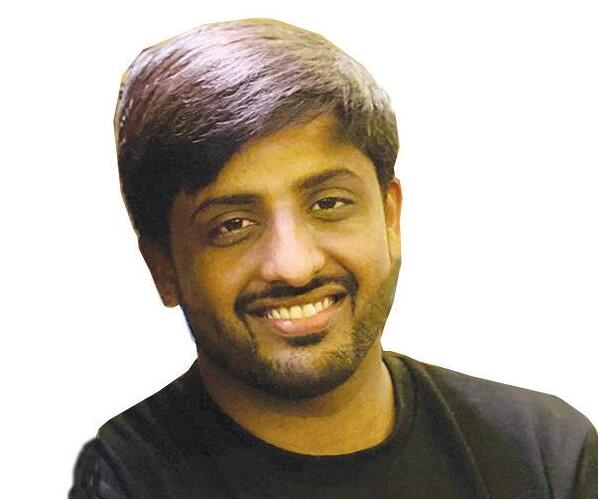
IN a striking alignment of interests certain members of US Congress particularly those with pro-Israel pro-India and antiPakistan inclinations are demonstrating support for Imran Khan, who remains embroiled
However, this alignment is not in Pakistan’s favour if it involves compromising on issues of sovereignty or domestic policy independence The backing from these pro-India and proIsrael members also inadvertently validates Pakistan s long-standing concerns about Indian interference and influence on global platforms India’s considerable lobbying power in Washington and its alignment with Israeli interests mean that any US interference in Pakistan even under the guise of supporting democratic processes can seem highly suspect For the Pakistani public and policymakers, this could feel like yet another instance of foreign players attempting to shape Pakistan’s political landscape Among Congress members supporting Khan’s cause 21 hold anti-Pakistan views This faction has a history of advocating policies that have placed Pakistan in a negative light especially concerning regional security and counterterrorism efforts Their involvement in Khan s case can be interpreted as a further attempt to influence Pakistan’s political stability For these lawmakers supporting a political upheaval in Pakistan could weaken the country internally making it more susceptible to external influence This external interference erodes the very concept of democratic autonomy, transforming an internal political matter into an internationalized issue ripe for manipulation In seeking to bolster Khan’s position, these anti-Pakistan lawmakers may inadvertently (or otherwise) be fueling divisions within Pakistan fostering a political environment that is vulnerable to foreign agendas This is an alarming trend, especially for a country that has historically struggled to maintain political stability and sovereignty without foreign intervention The support from US Congress members with such defined ideological inclinations has raised justifiable suspicions in Pakistan This involvement in Pakistan s domestic politics framed
as support for democracy, might serve as a convenient façade for more strategic motives If the PTI were to gain power with the backing of these foreign lawmakers the potential for external influence over Pakistan s policy decisions becomes even more pronounced For a sovereign nation, this represents a fundamental challenge to the independence and integrity of its political processes
It is imperative that any international support respects Pakistan’s right to self-determination When US lawmakers with pro-Israel pro-India and anti-Pakistan leanings champion political causes in Pakistan, it sends a message that resonates uneasily with many Pakistanis: Are these lawmakers truly concerned with Pakistan’s democratic health, or are they invested in manipulating the country’s political landscape to align with external interests?
For Pakistan the path forward should involve minimizing external influence in its domestic affairs, especially from individuals or entities with conflicting geopolitical alignments Supporting democratic principles does not mean that foreign powers should dictate or influence political outcomes Pakistan’s democratic integrity relies on a political environment free from external intervention where its leaders and citizens can make decisions based on the country s best interests rather than foreign agendas Pakistan’s sovereignty should be upheld by ensuring that foreign players with conflicting interests are kept at a distance from domestic affairs While international relationships and diplomatic ties remain important Pakistan s internal politics must remain shielded from foreign pressures that could compromise its national interests Only by fostering an independent, resilient democratic system can Pakistan chart a path that aligns with its people’s aspirations and its sovereign interests
The writer can be reached at asadmalik2008@gmail com A q u e s t i o n o f s o v e r e i g n t y




Laique HaiDeR
TH E concept of diplomacy in the 21st century has changed greatly mainly because of the dynamism that characterizes the world today Historically, diplomacy was exclusively conceived as direct relations between states and foreign governments only but this has evolved over time to include anybody anything technology and creativity
A striking example of dynamics in 21stcentury diplomacy is the Paris climate accord signed in 2015 by 196 countries This important treaty proves that the global community can unite on a vital problem by recognizing the initiatives of the USA China and the countries of the European Union
Another piece of successful diplomacy was the Iran nuclear deal or also the Joint Comprehensive Plan of Action, or JCPOA Signed between Iran and the USA and facilitated with the cooperation of Russia, China, the United Kingdom France Germany and the EU JCPOA is a perfect example of diplomatic endurance and concessions
Using the experience of the USA and Cuba after the announcement of the US authorities on the desire for the normalization of relations in 2014, the subject of the topic is the stranger aspect of engagement diplomacy They resumed their relations and foreign intercourse in art and commerce in the middle of the 21st century
In the era when the use of technologies is becoming dominant in human life, diplomacy has embraced technological developments Communication technology such as social media forums and cybersecurity are some of the key items that have become compulsions for diplomats Primary examples of this new change are the US Department of State s Digital Diplomacy plan and the European Union s Digital Diplomacy Network ” Official diplomacy is accompanied by the phenomenon of public diplomacy: people s diplomacy cultural diplomacy and international education There are the Fulbright
Scholarship programme, the International Visitor Leadership programme, among others, which enhance humility and global ambassadors for the participating nations
This represents a growing trend of economic diplomacy because major countries want free trade foreign direct investments and more sustainable development This has been evidenced by the formation of economic blocs like the European Union and the Association of States of Southeast Asia (ASEAN)
Multilateral diplomacy is still valuable since diplomacy is carried out in international organizations and through international relations Both the United Nations and WTO, as well as the International Court of Justice, best represent collective action
But there are also challenges of diplomacy in the 21 t century to a certain degree Protectionism and geopolitical tensions are on the increase; they are able to destabilize the world Global warming, outbreaks, and disasters can and should be fought collectively across the global community
The coronavirus effects have highlighted the necessity of rising states collaboration and diplomacy plays The WHO coordination of multilateral diplomacy and sharing of vital information cements the impact of multilateral diplomacy
The special attention is paid to the USA and China Climate Change Agreement signed in 2014
Then there is the India-US Nuclear Deal of 2008 the ASEAN Economic Community the development of which has been completed in 2015 ASEAN–China Free Trade Area was signed in 2018 to establish the Intercontinental Free Business District
The above achievements are indicative
to the extent that diplomacy, when practiced and deployed, can enhance the provision of solutions to most of the challenges facing the world
Quite surprisingly a feeling is gradually emerging that today s international relations cannot succeed without resorting to information diplomacy Informal diplomacy can be best described as diplomacy that goes beyond official government-to-government contacts and involves contacts that are people-to-people in their aim of achieving cooperation trust and conflict resolution
Track II diplomacy is an unofficial diplomacy where non-governmental specialists and scholars sit behind closed doors to discuss sensitive Isles Other forms of people-to-people contacts called informal diplomacy are cultural exchange business and trade contacts civil society groups use of social/Internet platforms and other contacts between the citizens
Such channels include the following advantages: trust and confidence, effective cooperation on sensitive matters, the establishment of common interests, the invention of new approaches and raising awareness between the two parties Some of the best examples of informal diplomacy include the Oslo Peace Accord the Helsinki Accord, and the US China Track II
Thus, informals are of rather great importance in the 21 century owing to globalization non-state actors and multifaceted international problems Appropriate informal diplomacy encompasses the understanding of culture adaptability good communication skills, and the skills of building relationships
Despite the formal structures, people s governments can encourage actors to cooperate, trust each other, and solve multifaceted
issues Thus the function of informal diplomacy will remain critical in creating sustainable healing stability and appreciation Diplomacy in the future is continually changing due to technological changes, alterations in the distribution of power, and other new factors
Considering the fact that the Asia-Pacific region occupies the most developing economies and has many different cultures its role in the formation of further diplomatic relations will be crucial to its role in the formation of future diplomacy
The changes are also observable on the level of diplomatic practices vital in the region where digital diplomacy public diplomacy or track-two diplomacy are added to the conventional diplomacy ASEAN has become an important actor for regional diplomacy, advocating for economic integration, the settlement of conflicts, and cooperation
Since the emergence of China and India as superpowers of the world, the diplomacy of the Asia-Pacific states has taken a new turn In both cases diplomacy is being used to serve the economic and strategic needs of both countries while at the same time responding to the questions of regional security Japan, South Korea, and Australia too are very busy in diplomatic processes, nurturing cooperation and managing problems in the region
There are many important diplomatic arrangements situated in the region such as the ARF (ASEAN Regional Forum), the EAS (East Asia Summit), the APEC (AsiaPacific Economic Cooperation Forum), the SCO (Shanghai Cooperation Organization), and the BRI (Belt and Road Initiative) These initiatives give the region participation in multilateralism economic cooperation and conflict resolution But the Asia-Pacific area also has diplomatic concerns such as the Spratly Islands Issue, the Democratic People’s Republic of
Therefore, international diplomacy in the 21st century is best referred to as a complex, adaptive, and progressive form of diplomacy. Through embracing technological change, international cooperation, or encouraging cultural sensitivity, diplomats can easily understand the relations between two countries and help to promote a peaceful and happy world Today, the art of diplomacy is not the same as in the past, and it is adapting itself to todayÊs world
Korea s Uranium Project nationalism protectionism, climate change and environmental degradation, and cyber security threats
To meet these challenges, diplomacy in the Asia-Pacific region must progress toward new forms effectively using high technologies in strengthening diplomatic cooperation and communication increasing people-topeople exchanges, and cultural diplomacy, promoting economic integration and cooperation, developing regional security structures, and combating climate change and environmental issues
Thus the future of diplomacy within the Asia-Pacific region shall be envisioned based on a nation s capacity for change in the face of emerging threats, the incorporation of new technological developments, and the strengthening of relationship horizontality Some important diplomatic enactments are the ASEAN Economic Community the Trans-Pacific Partnership Agreement the India-ASEAN FTA the China-ASEAN FTA, and the AI CEPA
These agreements are evidence that diplomacy can lead to economic development, formations of regional cooperation, and ultimately stability It also aims at discussing key trends affecting the diplomatic dynamics in Asia-Pacific post-COVID-19 namely the shift of Anglo-Saxon polarity and multilateralism between the USA and China, and the role of India and other emerging powers, regional institutions/non-state actors and technology in this process In this context diplomacy is going to matter as the region has to manage these societal-political realities in order to create a pull for peace, stability, and prosperity Today s diplomats cannot be rigid figures; they have to be dynamic and innovative so they can foster cooperation, understanding, and peace
Therefore international diplomacy in the 21st century is best referred to as a complex adaptive and progressive form of diplomacy Through embracing technological change, international cooperation, or encouraging cultural sensitivity, diplomats can easily understand the relations between two countries and help to promote a peaceful and happy world Today the art of diplomacy is not the same as in the past,

neuroscience and information theory If that sounds like your jam it will be but the new-atheist polemics were written to be whipped through and this book is not

TGod’s nonexistence were suddenly discovered Rather, it arrived because specific events and deeper forces made the time ripe for unbelief because the early internet served as a novel transmission belt for skepticism because Sept 11 advertised the perils of religious fundamentalism because the Catholic Church s sex abuse crisis undermined the West s strongest bastion of organized Christianity and because the digital-era retreat from authority and institutions hit religious institutions first
The point of listing such forces is not to diminish the influence of Dawkins and the rest By seizing their opportunity the anti-God polemicists pushed secularization and de-Christianization further than they might otherwise have gone It s just to emphasize that success in the battle of ideas is often about recognizing when the world is ready to go your way, when audiences are suddenly primed to give your ideas a fuller hearing than before Such an opportunity confronts religious writers today The new-atheist idea that the weakening of organized religion would make the world more rational and less tribal feels much more absurd in 2024 than it did in 2006 Existential anxiety and civilizational ennui not rationalist optimism and humanist ambition, are the defining moods of secular liberalism nowadays The decline of religious membership and practice is increasingly seen as a social problem rather than a great leap forward People raised without belief are looking for meaning in psychedelics astrology UFOs And lately the rise of the “Nones” Americans with no religious affiliation has finally leveled off
So the world seems primed for religious arguments in the same way it was primed for the new atheists 20 years ago But the question is whether the religious can reclaim real cultural ground especially in the heart of secularism, the Western intelligentsia as opposed to just stirring up a vague nostalgia for belief
It’s one thing to get nonbelievers to offer kind words for cultural Christianity or endorse the sociological utility of churchgoing The challenge is to go further to persuade anxious moderns that religion is more than merely pragmatically useful more than just a wistful hope that a religious framework actually makes much more sense of reality than the allegedly hardheaded materialist alternative I have skin in this game, since I will be offering my own attempt at persuasion next year But the past few months have brought three religious books that enter this debate covering the philosophical the scientific and the experiential cases for a religious perspective on the world
The philosophical case comes from polymathic philosophertheologian David Bentley Hart, who has probably forgotten more about obscure Hindu sutras than I know about my own family His new book is “All Things Are Full of Gods: The Mysteries of Mind and Life ” the culmination of decades of argument against the new atheists and all reductive accounts of human consciousness As a culminating work it is not necessarily the best place for a neophyte to start: That distinction belongs to Hart s 2013 book, The Experience of God, a much more straightforward introduction to religious understandings of reality “All
The dialogical format does have one great advantage though: It requires Hart to give extended space to ideas that he s famous for treating with, well, Olympian disdain Through the god Hephaestus, to whom he assigns the skeptical and anti-supernatural part, you get an extended elaboration of the arguments that mind and self and thought are reducible to mindless matter That makes it more compelling when those arguments are defeated (as I think they clearly are) by Hart s argument that mind and spirit have to precede the physical world for our experience of the universe to make any sense at all
If you think this sounds like interesting philosophical noodling but also fundamentally anti-scientific, you can turn to the next book in my trio Spencer Klavan’s “Light of the Mind Light of the World ” which is an argument that the development of modern science supplies laboratory evidence for the primacy of mind
This is not just the familiar case that the fine-tuning of the universe is proof that some divine intelligence set the whole thing up It’s an argument that the materialist model of the universe as a closed physical system, in which units of matter bounce around like billiard balls has been overthrown by the quantum revolution which demonstrated to the bafflement of many scientists that probabilities only collapse into reality itself when a conscious mind is there to measure and observe Klavan argues that really reckoning with this discovery should force a decisive choice On the one hand, we can embrace some kind of “multiverse” conceit (popular in today’s pop culture for a reason) in which there is no singular reality and all possibilities somehow coexist But that yields incoherence nihilism the death of the very scientific project that it s trying to preserve
Which is why the other choice is preferable if you really trust the science: Accept that there is only one reality and that it s created when consciousness gives shape to time and space” created in some sense every time we look upon it and created fundamentally by the power that said let there be light in the first place
This is wild stuff from a materialist perspective but in my experience with open-minded skeptics it s not the place where they hit their limit That s more likely to happen when you proceed one step further, into the territory of the real old-time religion, and start talking about the more personalized and unpredictable ways that supernatural mind might shape material reality the realm of miracles and revelations visions and portents legit angels and real demons
This realm is the subject of the last book in my troika Rod Dreher s Living in Wonder: Finding Mystery and Meaning in a Secular Age It s partly a how-to guide for seekers after the more mystical relationship to reality that most human societies have enjoyed but ours has unwisely amputated But it’s also a collection of anecdata about the persistence of enchantment even under allegedly disenchanted conditions the supernatural happenings that flower constantly in our notionally secularized world
This means that of the three the Dreher book is the most fun it tells the best stories and it covers aspects of human life that are more fundamental to religion s resilience than any argument or theory above all, the fact that even in societies that exclude any hint of supernaturalism from their systems of official knowledge strange experiences just keep on breaking in But from the perspective of the keepers of official knowledge the supernatural is often the place where I m interested gives way to I just can t A God of the philosophers or physicists is one thing, but a God of exorcists, miracle workers and neardeath experiences is just a bit too disreputable at least until you have such an experience yourself From the religious perspective Hart’s and Klavan’s no less than Dreher ’s it’s all the same God So the test for all their arguments is whether a world that s unhappy in its unbelief can be pushed all the way to this conclusion or whether con-
E R N E T freedoms have continued to decline in Southeast Asia, mirroring the region’s ongoing shift away from democratic governance according to a recent survey War-torn Myanmar ranked alongside China as the world s worst country for online freedom marking the first time Beijing has shared the bottom spot in US-based Freedom House s annual Freedom on the Net” report, released last week The survey and analysis measures ways that governments and non-state actors restrict rights online This includes blocking access putting limits on content and violations of the right to privacy along with legal and extralegal repercussions for online speech Thailand and Vietnam were among the bottom 20 countries, while Malaysia, Singapore and Indonesia were rated as “partly free No surveyed country in the region was classified as free Cambodia Malaysia Myanmar the Philippines and Singapore saw their scores decline in this year s report, while Thailand s and Vietnam s scores remained unchanged Out of the eight Southeast Asian countries surveyed only Indonesia showed improvement with its rating rising from 47 to 49 out of 100 points These results are not surprising for a region that includes military-ruled Myanmar, communist-governed Vietnam and Laos, and one-party states like Cambodia and Singapore Vietnam and Myanmar also ranked near the bottom of Reporters Without Borders’ latest World Press Freedom Index while most Southeast Asian states except for Timor-Leste placed in the lower half of the table COUNTRIES PRIORITIZE CONTROL OVER ONLINE SPACES: “Few, if any, Southeast Asian governments even feign commitment to improving and protecting online freedoms these days Shawn Crispin the senior Southeast Asia representative for the Committee to Protect Journalists, told DW Even the region s nominally democratic states are putting priority on online control and regulation over promoting online freedoms,” he added “There is little good news and plenty of bad when it comes to the future of online freedom in the region In March 2024 Indonesia introduced a law imposing fines on tech and social media companies that fail to remove content prohibited by the state Other legislative efforts to restrict online speech stalled in parliament this year but could be revived under the country’s new president Prabowo Subianto who took office last weekend Digital media repression is an imminent threat to Indonesia s declining democracy, argued Sofie Syarief, a visiting fellow at the ISEAS–Yusof Ishak Institute, in an essay published this week The recently published Reuters Institute’s Digital

Zong
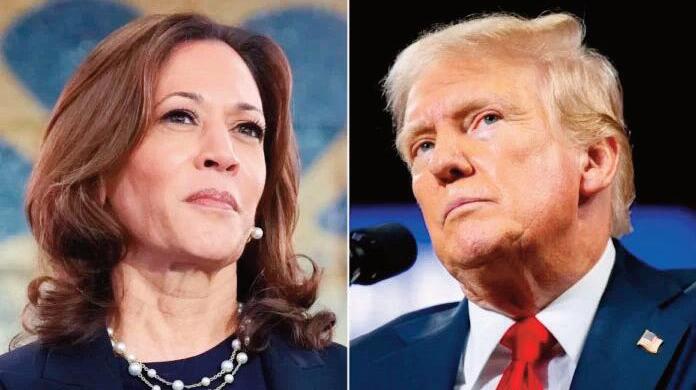
Canadian inquir y links Amit Shah to alleged targeting of Sik h ac tivists
Canada opposition leader cancels Diwali event amid India tensions OTTAWA
G
N C
E S Amid worsening India-Canada relations after Ottawa accused Indian officials of targeting pro-Khalistan elements in Canada, the country s Opposition Leader Pierre Poilievre canceled a Diwali celebration, organized by the overseas Indians at Parliament Hill initially set to be hosted by Conservative MP Todd Doherty on October 30 According to Kashmir Media Service the Overseas Friends of India Canada (OFIC) the event s organizer expressed disappointment over the lack of explanation for the sudden cancellation, calling the decision insensitive and discriminatory
bodyguards after she ordered security forces to storm the holiest Sikh temple to flush out Sikh separatists Canada in mid-October expelled Indian diplomats, linking them to the 2023 murder of Sikh separatist leader Hardeep Singh Nijjar on Canadian soil India also ordered the expulsion of Canadian diplomats The Canadian case is not the only instance of India s alleged targeting of Sikh separatists on foreign soil Washington has charged a former Indian intelligence officer, Vikash Yadav, for allegedly directing a foiled plot to murder Sikh separatist leader Gurpatwant Singh Pannun a dual US-Canadian citizen and Indian critic in New York City
The FBI warned against such a retaliation aimed at a US resident India has said little publicly since announcing in November 2023 it would formally investigate the US allegations The accusations have tested Washington and Ottawa s relations with India often viewed by the West as a counterbalance to China
Wang Y i meets Russian deputy foreign minister in Beijing
Chinese Foreign Minister Wang Yi said on Wednesday that China and Russia enjoy a relationship rooted in historical logic and strong internal momentum unaffected by shifting global dynamics The China-Russia relationship does not target any third party nor should it be interfered by any third party Wang said during a meeting with Russian Deputy Foreign Minister
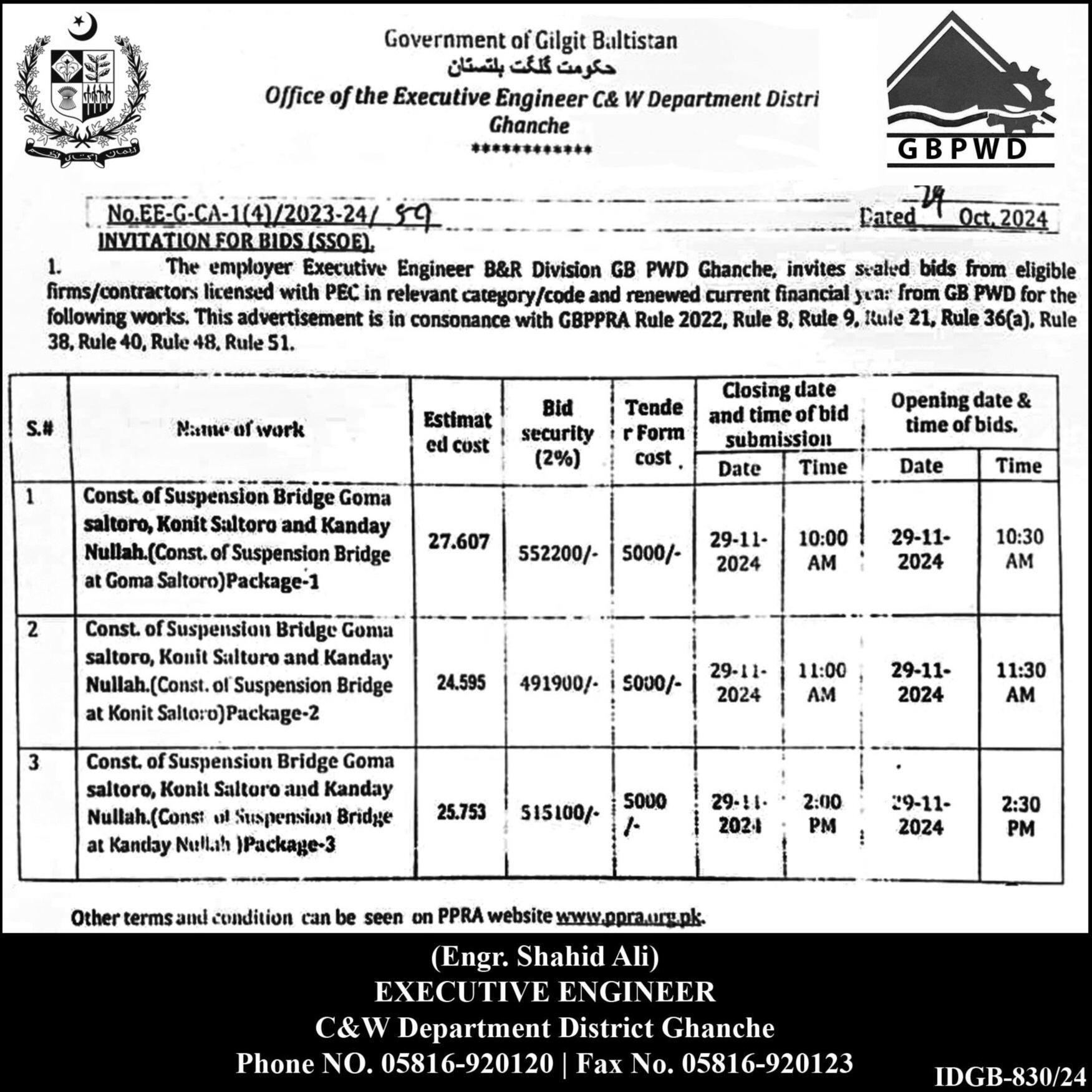
d r e i Rudenko in Beijing Wang also a member of the Political Bureau of the Communist Party of China (CPC) Central Committee highlighted the recent BRICS leaders summit in Kazan as a success that advanced BRICS cooperation, strengthened the unity and self-reliance of the Global South, and played a constructive role in promoting global peace and stability With China now holding the rotating presidency of the Shanghai Cooperation Organization (SCO) Wang expressed China s commitment to working closely with Russia to foster new progress within the SCO Rudenko commented on the significance of this year, marking the 75th anniversaries of both the founding of the People’s Republic of China and the establishment of China-Russia diplomatic relations Rudenko noted that Russia-China ties have reached a historic high He reiterated Russia s willingness to work with China to implement the strategic plans of both countries leaders, enhance high-level exchanges, deepen practical cooperation and maintain coordination on international and regional issues to drive further development in Russia-China relations



